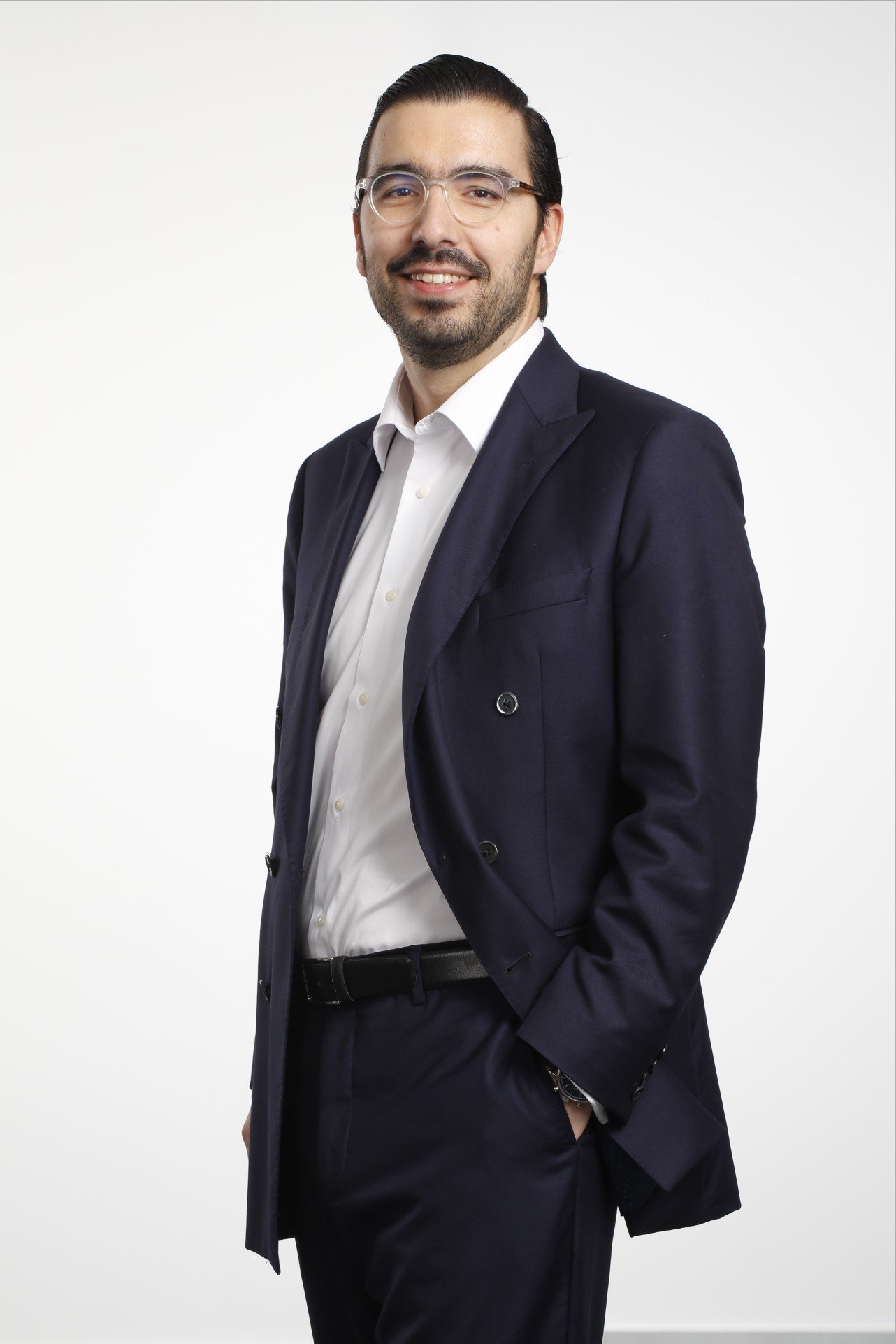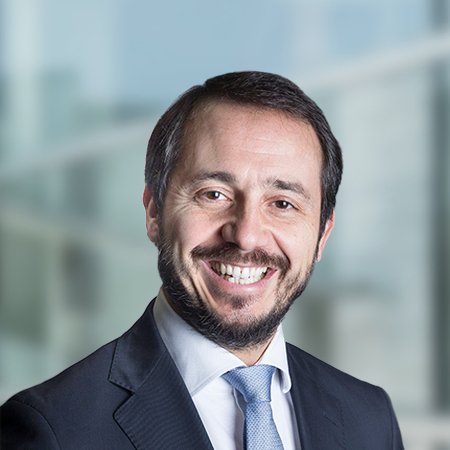RRP: One of its kind

When Iberian Lawyer interviewed Ricardo Reigada Pereira, managing partner at RRP Advogados, one could feel the energy and enthusiasm from the outset of the conversation. It is undoubtedly this drive, together with Reigada Pereira’s young and experienced team with international law firm backgrounds, that have seen the project grow from five to 30+ lawyers in just five years. The firm recorded the biggest revenue growth in Iberian Lawyer’s recent Top 30 rankings for Portugal, with an incredible 24% increase in 2020 compared to 2019. Ricardo took the time to share with us what he believes lies at the heart of this success, where they want to get to, and the biggest challenges law firm leaders are currently facing.
Congratulations on celebrating RRP Advogados’ five year anniversary earlier this year. Can you summarise how the last five years has been for the firm?
In a word, the last five years have been a thrill. We went from a team of five lawyers to a team of 30+ lawyers in five years. Our plans were, and remain, bold. We want to become a reference and create a legacy for the future. That is at the heart of RRP from our inception. One can arguably say the world does not need just another law firm. We tend to agree, but we felt there was room to bring something different to the market. A law firm that one can trust to deliver (all lawyers’ credentials were sufficiently sound) and that embodied an entrepreneurial spirit and a purpose that would have no match in the market.
We acknowledged “existence” is still perceived as a preceding “essence” in the law industry. One would be surprised to hear from clients why they work with law firm “X”, instead of law firm “Y” or “Z”. No quintessential message or leitmotiv usually comes across. The ability to deliver usually comes first (and sometimes it effectively consists of the only reason conveyed by such clients). This meant we needed to ensure the team was able as a whole, from day one, to step up and match what any other transactional law firm was pledging to deliver to any given client at any point in time. This was a particularly demanding task for us back in 2016. Assembling the right mix of talent, experience and credentials was not only a priority but a condition precedent to our success. This was still, however, shy of our true objectives. We wanted to change the delivery model the industry has been insisting on for years. The “essence” lies there. There was, and still is, a mismatch between what law firms perceive as their clients´ needs and what clients actually want (even if they cannot accurately describe what that should be). It must be us – the actual players in the Legal services industry – to make it a tangible purpose. Our next five years will be focused on making that essence more manifest, supported by the credentials, reputation and financials we managed to build in the previous five-year period.
What initially attracted you to a career in the Legal profession?
My personal attraction to the Legal profession was always closely linked to the transferable skills Legal education can provide an individual, combined with the intellectual challenge Legal affairs constantly poses. I was always an outstanding student, both at and before University, and making choices between different areas gave rise to opportunity costs I was never happy to endure. Getting into Law School was a way of accommodating this concern, ensuring such opportunity costs remained negligible. I could still then learn economics while studying law. I could still study psychology or philosophy while using that for my benefit in multiple Legal disciplines and throughout life. Becoming a lawyer was then a natural choice since it is was – by far – the profession that allowed me to engage in multiple domains. This is one of the thrills the profession brings.
Who were the biggest influences in your early career, and what did they teach you?
The individuals who helped me become a more skilful professional and who pointed out to me – by example – what excellence in a profession is. This includes lecturers I had – and inspired me to become one myself – such as Miguel Real (pseudonym for Luís Martins, my all-time favourite professor who taught me Philosophy when I was 18 years old), Fernando Correia Araújo (Lisbon University, School of Law) or Sousa Franco (Lisbon University, School of Law), all of them sharing a multidisciplinary approach to specific problems we had the opportunity to discuss. My early career was also influenced by multiple individuals – several of them colleagues of mine at Linklaters – but if one name comes immediately to mind, it is Fernando Carreira Araújo (currently an executive director at The Navigator Company) whose intellectual brilliance and rebellious character always fascinated me. I like to think I share some traits with all these notorious people, notably the ability to trust young professionals to achieve great things. They did that with me. Hopefully, I will be able to do that for the younger people with whom I interact.
Before founding RRP, you were at Linklaters for over 12 years and joined a year after opening their office in Portugal in 2002. How has that experience helped you in your current role?
Saying it was critical is an understatement. Linklaters – particularly in those early years – enabled me to see from inception what the Legal profession was supposed to be and – more importantly – how it was evolving. Looking backwards, my impression is that almost everyone in the Lisbon office was still learning about what the gold standard in the Legal profession was. There was no actual experience back then on what it meant to have a magic circle law firm operating in the country. Some of the firm’s cultural foundations at that point in time would, in today’s perception, raise eyebrows. There were some staggering straplines for today’s common-sense perception, with things like “Achieving the Unachievable” or “Going the extra mile”, for instance. I was, however, a true believer of the underlying merits of such approaches and acknowledged they meant to be a fair representation of what Linklaters stood for. Achieving excellence – with consistency – requires a sort of resilience and ambition that is always hard to put into words. We would probably call it “grit” nowadays. Without that ambition, any given project will struggle to lift off. For me, as RRP’s managing partner, we also need to rely on and instil such relentless attitude and focus in order to achieve our firm’s goal. The whole team needs to act together for such a purpose.
From the outside, it seems that the firm has a young and vibrant team with international law firm backgrounds on most of your colleagues CVs. How would you describe the internal culture at RRP?
That is a fair perception of what RRP effectively is and what it stands for. Diversity was always a goal for us, but there are certain features we want all our professionals to share, one being the ability (and experience) to work on cross-border assignments and another sharing an entrepreneurial spirit at all times. We emerged as a Legal start-up and want to remain consistent with such a mindset as we keep growing. Plus, RRP’s culture is not only about performance but in making such performance meaningful. That is, after all, the reason why most our people decided to become a lawyer. Our pledge is to make that happen.
RRP was recently featured in Iberian Lawyer’s top 30 rankings of law firms by revenue in Portugal and achieved the biggest growth of any firm in 2020 compared to 2019 (24%). Can you tell us about your relationship with EY and how important being a member of their network has been to your growth?
Growth is, for us, a confirmation we have been moving in the right direction. The market is attesting our initial assessment was accurate. What we firstly aimed at achieving – more than growth – was to ascertain how we could expand on the client base we had back in 2016. For that reason, we created several tangible success milestones, things like ascertaining how many times clients were coming back to us and – more powerfully – how many were actually and proactively recommending our services to other players. The figures at this level were astonishing. They proved our approach was spot on. The power of networks came shortly after.
Networks are essential for capital importing countries such as Portugal, and the ability to secure international mandates very much depends on how strong the relationships with international firms is. We remained – there was no actual alternative to it – independent from EY, and that also meant we were able to keep relationships built in the past. In its turn, the affiliation with EY Law network brought some rather positive impact to some Legal areas, while others only marginally felt its contribution.
Our initial strategy was to put in place a structure that would house transactional work on cross-border contexts as no other. That had been our past for multiple years in our previous law firms. We aimed at keeping that alive while slowly different onboarding sorts of assignments.
In the Spanish market during the last decade, we have seen the impact of the Legal arms of the big four accounting firms. Do you see this trend being replicated in Portugal?
I am afraid Portugal is not there yet. Without a change to the applicable Legal framework, it will be hard to replicate the Spanish model, where a true one-stop-shop model can flourish. A context where internal disaggregation is possible and all work packages are kept under one roof is not yet feasible in Portugal. In any event, our impression is that big four firms are not exactly adopting a single and consistent approach. Quite significant differences exist between them, each relying on the different visions the people responsible for managing the Legal practices have about what one can actually bring to the Legal industry, both locally and regionally.
How do you think RRP Advogados can and does differentiate itself from your main competitors?
RRP’s culture is supposed to play a pivotal role in this regard. A true start-up spirit is enshrined by the team – anchored in sound financial independence – that has been working as a propeller for everyone to bring the best of themselves under all circumstances. There are no dogmas at RRP about what Legal delivery should be. The anchor point remaining – with no surprise – the clients’ satisfaction.
Law firms’ business models essentially rely on two very simple premises; securing the best human capital and securing the best clients. Both are naturally intertwined. Successful law firms in Portugal – and there are a few – were able to get to where they are now by essentially consolidating their Legal practices, with size playing a paramount role in such efforts. For us, the key challenge consisted in ascertaining how could we – as newcomers – achieve success in a shorter period and with a fraction of the size of larger law firms?
Our answer to it was unpretentious, we needed to bring straightforward advice to clients, where exceptional service meets accessible expertise. We also felt there was a need to shift the delivery model firms have been using for years, a process that is currently undergoing and that will surely impact the whole industry. In this regard, and although we have no illusion about being able to fully grasp what the future holds, we at least need to ensure we are in the pole position – and ultimately play an active role therein – in readdressing the way Legal advice is provided to clients. This means we do not only need to increase efficiency in the “old law” services – e.g. by improving processes – but actually aim at introducing services that are fundamentally new and commercially relevant to clients (some of which will replace the work law firms have been doing for years).
What do you think are the biggest challenges law firm leaders are currently facing?
Law firms currently need to master technology, leverage knowledge and data management and really embrace it as part of business. This is likely to be the biggest challenge any law firm leader is currently facing. Multiple innovative delivery models are emerging, this means systems that improve the efficiency of a firm’s operations will continue to rapidly evolve, whereas systems relying on AI, machine learning, Legal products and solutions – with the onboarding of Legal tasks and the ability to provide insightful views into the Legal needs of clients – will likely take more time to become true trends.
At the same time, a leader needs to be able to put aside some myths the industry is constantly reverberating. For instance, the intuitive direct correlation between the value of Legal work and the complexity of Legal work is yet to be proven in our view. Low-value questions – e.g. on labour or commercial arrangements – can raise dense Legal questions, while high-value issues can sometimes be straightforward. This does not mean the deployment of knowledge management and technology will not become a widespread phenomenon. It will. It simply defeats the idea – commonly shared among the industry – that complex tasks will still be handled by traditional law firms while less complex activities will rest with alternative Legal suppliers (regarded as the ones better suited to deploy process and technology). Such common-sense findings the industry has been providing seemingly suffer from a couple of ailments, both typical confirmation problem examples. On the one hand, the extent Legal work can be reduced to purely administration and process has been probably overstated. On the other hand, one needs to ask whether knowledge management, extensive use of AI systems and the need for online Legal products is something that should be limited to less complex tasks? It sounds rather paradoxical to us that Law would be going in the exact opposite direction of most industries that rely on the same technological developments.
What has been the most valuable thing you have learned since becoming managing partner of RPP five years ago?
Understanding how much we can effectively do to help others – and the whole team – to step up the game and ensure people achieve their true potential. Doing this at such an early stage of my career allowed me to take pride in the accomplishments of those I helped along the way.
By Michael Heron.
To read the full article on issue number 106 click here












